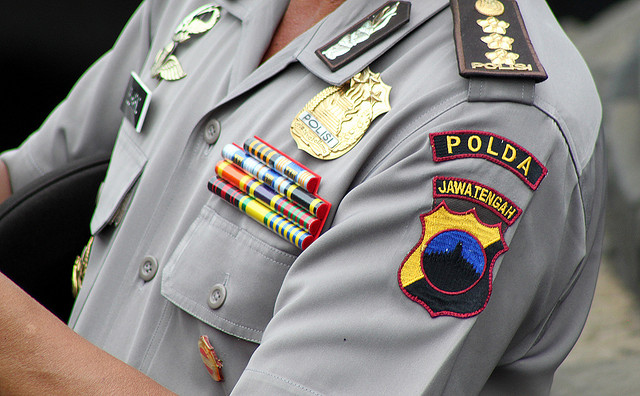While the political relationship between Australia and Indonesia is going through a tough time, the close relationship between their two police forces continues. That’s good for Australia and Indonesia because this relationship supports both countries’ national interests in promoting the rule of law and practical cooperation against crime and terrorism.
As our recently released report, ‘A return on investment: the future of police cooperation between Australia and Indonesia’, explains, the relationship between the Australian Federal Police and Indonesian National Police (POLRI) would benefit from some new thinking. That’s because their relationship is at an inflection point: in addition to the freeze in cooperation on cyber crime and people smuggling caused by the current rift, a number of joint initiatives have either matured (and require revision) or are becoming less relevant. Some others—like people smuggling—mightn’t be as relevant in the future either. The rift might have also created a trust deficit in intelligence sharing and the cyberdomain.
The close police relationship can help Australia and Indonesia navigate their way to the ‘new normal’—a new state of bilateral relations that the foreign ministers are in the process of negotiating. Both countries can leverage the past achievements and current, low-key collaboration of the two police forces in some new ways. This will also help shift the focus onto less politically-charged issues like cooperation on transnational crime.
One golden opportunity to mark the success of this relationship will be upon us soon. July 2014 marks the 10th anniversary of the establishment of the highly-successful Jakarta Centre for Law Enforcement Cooperation (JCLEC). This small school located in Central Java has seen over 15,000 law enforcement officers attend over 600 training activities in the last decade. It’s also bought a number of regional police force officers to Indonesia to discuss common threats like terrorism, people smuggling and organised crime. It’s been an outstanding success that should be marked, and used to promote the clear benefits of Australia–Indonesia cooperation.
Another opportunity might be to address absent parts of the bilateral cooperation. Currently, there’s no counterpart meeting for Australia’s Justice Minister, who’s responsible for the AFP. This is partly because the Indonesian system is differs to Australia’s, with the POLRI Chief reporting straight to the President. Still, a broad-membership forum focused on law enforcement could bring ministers and officials together to discuss cooperation and future capacity building projects. Its broad membership could also encourage a whole of government perspective among Indonesian law enforcers.
The Australian government could also request the Indonesian government to provide some policing experts for the G20 conference in November 2014. This conference will require Australia’s police forces to pool much of their specialist capabilities for a short period, and to hold more on stand-by in case of an incident. It’s a good time to recoup some of the investment Australia’s made in POLRI over the last decade by inviting some of their specialists to work in Canberra during this time. It’s also a great way to demonstrate the partnership between Australia and Indonesia, which are both G20 states.
Turning to medium-term opportunities, the next Commonwealth budget needs to restore the Law Enforcement Development Program (LEDP). This program provides the AFP with an ability to fund small cooperation projects with its partners, such as training courses, visits and gifts of equipment. In effect, the LEDP allows the AFP to respond quickly to new opportunities as they emerge. This level of flexibility will be needed as the ‘new normal’ for the bilateral relationship won’t emerge for some time yet, unless political conditions change for the better.
Beyond that, it’s also time to think about the longer-term police-to-police relationship. This will be important because an increasingly wealthy Indonesia, and increased links between the two countries, will likely be accompanied by an increase in transnational crime. Both forces should be thinking about how the investment of the last decade can be leveraged for mutual benefit. Building stronger people-to-people links through a police alumni organisation and new capability initiatives against cybercrime will help.
Finally, both forces could do more to spread the focus of cooperation beyond Indonesia by encouraging more activities in Australia and in the broader Southeast Asian region. This should include some long-term attachments for POLRI officers in Australia.
There’s also a great opportunity for the AFP and POLRI to work together in Myanmar, where its police force is emerging from military control and is in need of professional training. Such cooperation would promote both Australia and Indonesia’s interests in promoting democracy and change in Myanmar, and provide a tangible demonstration of the benefits of international police cooperation.
David Connery and Natalie Sambhi are analysts at the Australian Strategic Policy Institute. Michael McKenzie is a PhD scholar at the Australian National University. Their report, ‘A return on investment: the future of police cooperation between Australia and Indonesia’ was published by ASPI and is available for download here. Image courtesy of Flickr user Luther Bailey.


